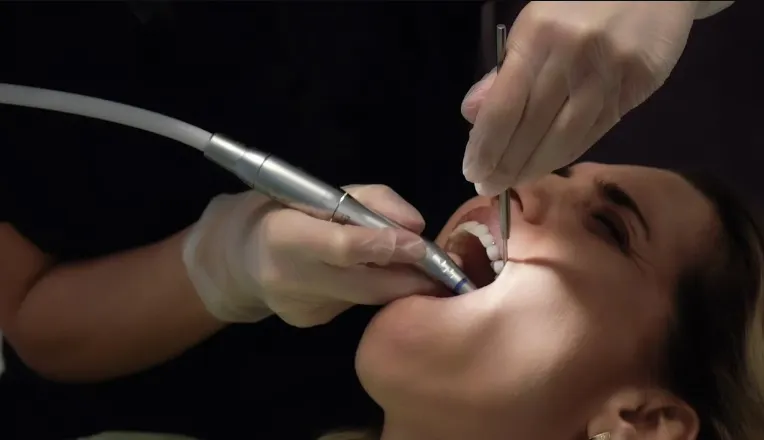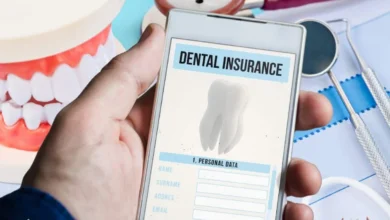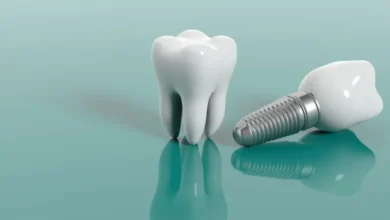The Cost of Opioid Treatment on Dental Health: A Deep Dive into Suboxone Tooth Decay Lawsuits

Opioid addiction is a major issue affecting millions of people across the globe. Suboxone is a medication that’s been used to control opioid addiction. While Suboxone has proven effective in treating opioid addiction, it has also been linked to severe dental decay.
Contents
Suboxone and Oral Health
Suboxone contains the active ingredient buprenorphine. This medication is commonly prescribed as a sublingual film or pill, which is positioned under the tongue to dissolve.
Buprenorphine and pH Levels
Buprenorphine is thought to cause dental problems due to its acidic nature. Recent studies suggest when Suboxone is administered as a sublingual film, it remains in the mouth for an extended period. It allows the drug to directly affect the teeth. Extended oral contact has the potential to change the mouth’s pH balance, lowering the pH below the critical 5.5.
The pH level in the mouth is critical to maintaining dental health. A lower pH indicates a highly acidic environment. When the pH falls below the critical point of 5.5, it can cause dental erosion. This erosion occurs when the tooth enamel, the hard, protective outer layer of the teeth, is worn away. It is a gradual and irreversible process.
Oral Problems Caused by Dental Erosion
Teeth are more susceptible to a variety of dental issues when tooth enamel erodes. They become weaker due to enamel loss, making them more vulnerable to cavities. As the erosion worsens, it can result in more serious problems, like fractured teeth. In extreme cases, the erosion can be severe enough to cause tooth loss.
Legal Implications: Suboxone Tooth Decay Lawsuits
The severe dental decay suffered by Suboxone users has resulted in numerous Suboxone lawsuits. According to these lawsuits, patients and doctors were not given enough warning by Suboxone’s manufacturers about the possibility of dental issues.
In the Northern District of Ohio, a Suboxone tooth decay lawsuit has been consolidated into a single federal lawsuit. The plaintiffs in these cases are seeking compensation for their dental injuries. This covers other losses like dental treatment costs, and pain and suffering. There are also Suboxone class action lawsuits being brought to the forefront. In this case, the plaintiffs are people who have been prescribed Suboxone for opioid addiction treatment.
The Role of Ongoing Research
Research on Suboxone and dental health is still being conducted. While current evidence indicates a strong correlation, further research is underway to fully grasp the gravity of the problem.
Further analysis of the VigiBase database highlighted a connection between Suboxone and dental caries. This positions Suboxone prominently among drugs known to lower saliva production. This condition, also known as xerostomia, can lead to serious tooth damage due to increased oral acidity.
In response to escalating concerns, UTHealth Houston School of Dentistry was awarded a federal grant in October 2023. The grant aims to fund pioneering research examining how oral buprenorphine affects the virulence of Streptococcus mutans. This bacterium is associated with tooth decay, highlighting the significance of the study in understanding and mitigating dental health risks. Additionally, this study contributes to our understanding of the precise effects of Suboxone on oral health.
According to TorHoerman Law, this research is critical to the ongoing Suboxone litigation. It will help determine whether the Suboxone manufacturers can be held liable for the dental injuries sustained by users. It will also help to shape future opioid addiction treatment strategies, ensuring that patients receive effective care.
Frequently Asked Questions
Is there a link between Suboxone and tooth decay?
Research has linked Suboxone sublingual films, which are intended to dissolve beneath the tongue, to tooth decay. This is particularly due to their acidic composition. Prolonged exposure to this acidic medication may erode tooth enamel, increasing the risk of cavities, gum disease, and tooth loss.
Can I brush my teeth after taking Suboxone?
Brushing your teeth after taking Suboxone should be carried out an hour later, at the least. This delay allows your mouth to return to its normal state, lowering the risk of tooth damage.
Why is Suboxone legal?
Suboxone is legal because it is categorized as a Schedule III controlled substance in the US. This classification recognizes both its medical benefits and its moderate potential for addiction and abuse. Consequently, only doctors certified by the DoHHS are authorized to prescribe Suboxone. This ensures that Suboxone is used properly and safely.
What’s the total Suboxone settlement amount?
The FTC finalized settlements totaling $60 million in 2019 and 2020. The initial disbursements to consumers started in May 2021. By April 2023, around 51,875 individuals had received their share of the settlement.
What medications are similar to Suboxone?
Zubsolv is a medication that is similar to Suboxone and may be used as a substitute. Both Zubsolv and Suboxone are used as first-line treatments for opioid dependence and addiction. They have similar compositions and functions, making them viable alternatives for treating opioid dependence.
The Way Ahead
The issue of Suboxone-related dental decay demonstrates the complexities of opioid addiction treatment. While medications such as Suboxone can be life-saving for people suffering from opioid addiction, they are not without risks. Patients and medical professionals need to be aware of the side effects.
If you have experienced dental injuries after Suboxone treatment, you might be eligible to file a Suboxone dental lawsuit. Contact a team of experienced ‘Suboxone-focused’ lawyers to discuss your case and explore the possible legal options.



